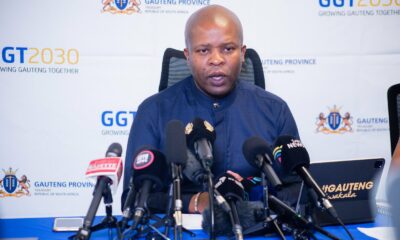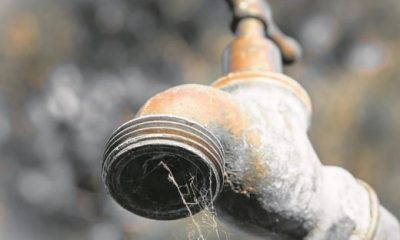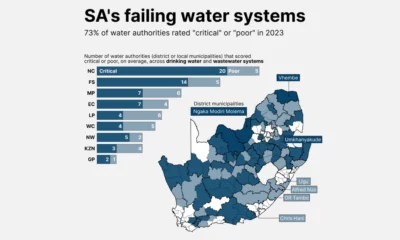Business
South Africa’s Leaking Buckets: Government Steps In as Water Crisis Deepens

From bucket baths to dry taps, millions are caught in a slow-moving disaster, and now the state is stepping in.
By now, the sight of Joburg residents queuing behind water tankers feels like a grim routine. But this isn’t just a Johannesburg issue anymore. Towns and cities across South Africa are battling the same nightmare: weeks, sometimes even years, without water, and not because of drought. It’s because the pipes and pumps meant to carry clean water have broken down entirely.
Now, in a move that signals just how severe the situation has become, the national government is taking over.
The Department of Cooperative Governance and Traditional Affairs (CoGTA) has stepped in to directly implement nearly R500 million worth of water service projects in 21 failing municipalities, cutting out local governments that can no longer deliver.
Why the crisis is worsening
According to Water and Sanitation Minister Pemmy Majodina, the collapse of water supply in many areas is due to “self-inflicted issues” like:
-
Poor maintenance
-
Municipal mismanagement
-
Illegal connections
-
A lack of investment
Many of the country’s Water Service Authorities (WSAs), which are supposed to manage delivery at the local level, are unable to function. Some no longer have the money, technical skill, or planning capacity to keep water flowing.
The stats speak volumes
The No Drop Report, South Africa’s official water performance audit, paints a grim picture:
-
Only 4 municipalities scored above 90%
-
65 scored below 50%
-
40 scored below 30%, considered critical
-
24 didn’t even submit data
That’s more than half of all WSAs either failing or flying blind.
‘Leaking buckets’ and lost litres
Water expert Professor Anthony Turton compares the situation to a leaking bucket. Even if bulk suppliers pour water in, it just drains out through broken infrastructure.
South Africa’s water loss rate is staggering:
-
47.4% of all clean water is lost before reaching taps
-
Of that, 40.8% is due to leaking pipes
This means billions of litres are wasted, and millions of people are left dry.
What CoGTA is doing differently
In response, CoGTA Minister Velenkosini Hlabisa confirmed that R494 million will now be managed directly by the national government through a funding mechanism called Schedule 6B.
This replaces the usual schedule 5B, which hands control to municipalities. Under 6B, CoGTA will plan and execute water projects itself, aiming for completion by March 2026.
The strategy also includes:
-
Training municipal staff to improve capacity
-
Prioritising water infrastructure over other local projects
-
Fixing broken systems instead of patching symptoms
The intervention is not a one-off. More failing municipalities will be added in future years as needed.
Public frustration is boiling over
The water crisis is no longer just a service delivery issue; it’s becoming a political flashpoint.
In Lekwa, elderly residents have spent years without running water, relying entirely on tankers. On social media, #FixOurWater continues trending every few weeks as new towns go dry.
Even President Cyril Ramaphosa acknowledged the scale of the issue in his 2025 January 8th statement, warning that the water crisis now rivals or exceeds the impact of load shedding on South Africans’ daily lives.
Is there hope for lasting change?
With the national government taking a firmer hand and funds now being redirected away from failed municipalities, there’s potential for progress.
But fixing pipes is only one part of the puzzle. The bigger question is whether local governments can rebuild trust and competence fast enough to take back control one day.
For now, the bucket is still leaking, but someone new is finally holding the hose.
Also read: Lilian Ngoyi Street Transformation: A R192 Million Rebuild Nears Its Next Phase
Follow Joburg ETC on Facebook, Twitter, TikTok and Instagram
For more News in Johannesburg, visit joburgetc.com
Source: Business Tech
Featured Image: Pexels


























